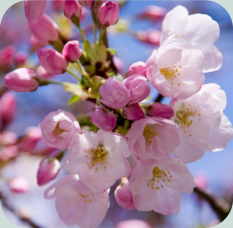Spring 2010
Table of Contents - Vol. VI, No. 1
Avik Chanda
The way you remember a bough of Shiuli
not by its scent, but by the fragile way
she used to hold it in old shaky hands
knuckle-veined fingers like braids
from a sun-bleached basket of cane,
as she sank her head into the dip of it.
Suddenly, you want it all back.
The sun. The moth-lit late afternoons,
the years, a silver-haired voice chiming
your name, till you awaken.
Frost, again, on the windows
like glazed glass in church:
as if angels hovered timidly
in the gilded beyond,
as if we could still be saved.
There are those marvels of sound wave and acoustics, whose invention
can stir the sleep-eyed, chill-dark hour before daybreak,
wake you, shake you leaf-awed, make you tremble and bend,
lie prostrate at the bedside, swearing that there is a God.
Like the opening bars of the Missa Solemnis or the muezzin’s first
call to prayer. Or the invocation of Mahalaya,
the very word drawing up a sepia-reel,
childhood, Calcutta, a generation in the 70’s
waking to the shudder of an annunciation --
the Goddess appearing, bloodied, from the mountains,
ten-armed, striding a lion, taking the evil bull by its horns --
all this, conjured by a solitary voice on the radio;
part-prophet, part oracle, rises starkly against a rising sun
the silhouette of a man at the pulpit. Birendra Krishna Bhadra.
Now, twenty years on, you wake in the dark to a damp October
and play the recording from a tape. Speak to the dead, again.
Take a cold shower, make tea. Prepare yourself. Remember.
Later, call up people at work -- saying you’ll take the day off.
© Avik Chanda
